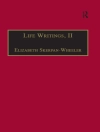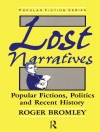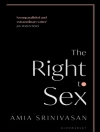Selected by Choice magazine as an Outstanding Academic Title
’Speak of me as I am, ’ Othello, the Moor of Venice, bids in the play that bears his name. Yet many have found it impossible to speak of his ethnicity with any certainty. What did it mean to be a Moor in the early modern period? In the late sixteenth and early seventeenth centuries, when England was expanding its reach across the globe, the Moor became a central character on the English stage. In The Battle of Alcazar, Titus Andronicus, Lust’s Dominion, and Othello, the figure of the Moor took definition from multiple geographies, histories, religions, and skin colors.
Rather than casting these variables as obstacles to our—and England’s—understanding of the Moor’s racial and cultural identity, Emily C. Bartels argues that they are what make the Moor so interesting and important in the face of growing globalization, both in the early modern period and in our own. In Speaking of the Moor, Bartels sets the early modern Moor plays beside contemporaneous texts that embed Moorish figures within England’s historical record—Richard Hakluyt’s Principal Navigations, Queen Elizabeth’s letters proposing the deportation of England’s 'blackamoors, ’ and John Pory’s translation of The History and Description of Africa. Her book uncovers the surprising complexity of England’s negotiation and accommodation of difference at the end of the Elizabethan era.
Spis treści
Introduction: On Sitting Down to Read Othello Once Again
Ch. 1 Enter Barbary: The Battle of Alcazar and 'the World’
Ch. 2 Imperialist Beginnings: Hakluyt’s Navigations and the Place and Displacement of Africa
Ch. 3 'Incorporate in Rome’: Titus Andronicus and the Consequence of Conquest
Ch. 4 Too Many Blackamoors: Deportation, Discrimination, and Elizabeth I
Ch. 5 Banishing 'all the Moors’: Lust’s Dominion and the Story of Spain
Ch. 6 Cultural Traffic: The History and Description of Africa and the Unmooring of the Moor
Ch. 7 The 'stranger of here and everywhere’: Othello and the Moor of Venice
Conclusion: A Brave New World
Notes
Bibliography
Index
O autorze
Emily C. Bartels is Professor of English at Rutgers University and Associate Director of the Bread Loaf School of English at Middlebury College. She is author of Spectacles of Strangeness: Imperialism, Alienation, and Marlowe, which also was published by the University of Pennsylvania Press.












